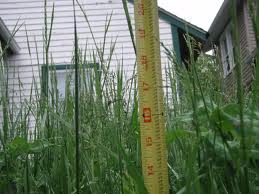By law you must disclose certain problems with your home when selling.
If you are selling your home, be prepared to tell all about its defects, issues and past. Most states require the home seller to disclose important information about the property’s problems, encumbrances or neighborhood issues that could affect the livability and value of the home. Sellers also need to disclose any repairs made to fix past issues, even if the problem was resolved.
So what exactly do you need to disclose? It varies from state to state, so be sure to consult with a real estate broker, attorney or your city planning department. Generally, be ready to disclose:
- Water issues. Has your basement flooded? Are any parts of your home regularly damp? Is your roof leaking? Any problems with your plumbing or sewage lines? You’ll need to list any and all issues, as well as any past issues.
- Pests. If your home has served as host to certain pests, such as termites or rodents, you’ll need to let potential buyers know. If you had a past issue but are now in the clear, have your home inspected before you list it to show the problem has been resolved.
- Lead paint and hazards. Homes built prior to 1978 may contain lead paint, and federal law requires that all known lead-based paint and hazards in your home be disclosed. Buyers must also receive the EPA’s pamphlet on lead paint (which your broker should supply) and be given 10 days to inspect the house for such hazards. Specific contract language and signed statements are also required; be sure to talk with your broker or attorney to gather all necessary documents.
- Insurance risks. If our home is located in a flood plain, earthquake zone or area prone to wildfires or other natural disasters, you must disclose this to potential buyers. Not only can these issues affect the value of the home, but they can also have a serious affect on the buyer’s ability to obtain insurance.
Some states also require that you disclose important information about your home’s past. For example, if your house is locally known as being haunted, you might need to disclose that as it could affect the value of the property. Also, some states require any deaths occurring in the home in the past few years to be disclosed as well.
If you find yourself unsure of what to disclose and what not to, it’s generally better to err on the side of caution. You don’t typically need to search for problems with your property that you weren’t already aware of, but intentionally withholding information could result in law suits later on with the buyer, who may want out of the deal or financial retribution.
This article contains general information. Individual situations are unique.
Related Articles:
- Selling Your Home: Find The Right Real Estate Agent
- Staging Your Home For Sale: Room By Room
- Staging Your Home For Sale: Top Five Tips
- For Sale By Owner: How to Sell Your Own Home
- Protect Your Home's Value From The Foreclosure Next Door
- Should you refinance your home mortgage?
- How To Challenge Your Property Assessment
- FHA Loan Requirements Are Changing
- How to Sell Your Home In a Down Market
- Co-Signing A Loan: What You Need to Know!
- Avoid Foreclosure Rescue Scams
- Loan Modification: Is it Right for You?
- What Is Foreclosure?
- What Is A Short Sale?
- What Is A Deed-In-Lieu?
- How To Avoid Foreclosure
- Do You Qualify for an FHA Loan?
- Should You Consider Owner Financing?
- Pros And Cons OF Owner Financing
- Owner Financing: How To Reduce Your Risk
 Print
Print Email
Email









